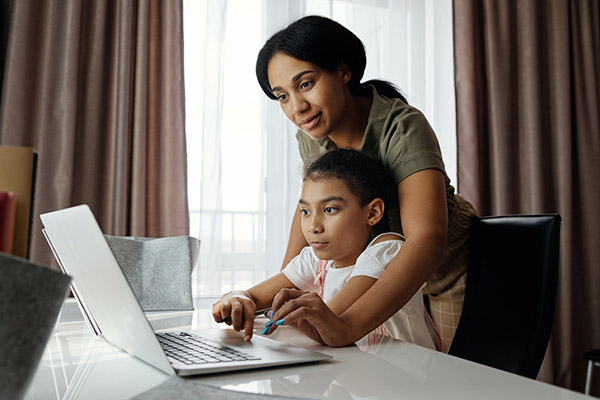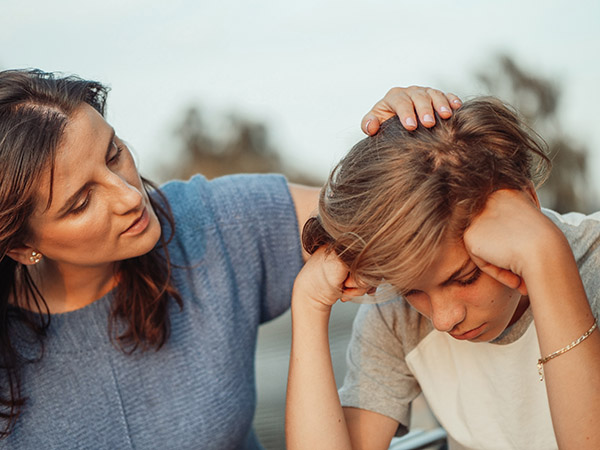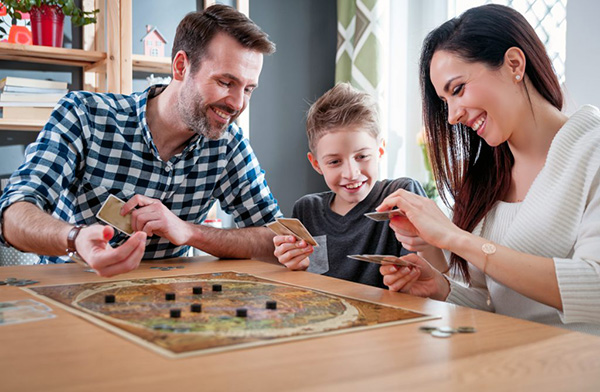Supporting Students & Families Heading Back to School
By Kristy Warren
The end of summer is always a busy time for families with school-aged children, but 2020 presents back-to-school challenges like nothing we’ve faced before. Coronavirus COVID-19 has impacted all aspects of our lives, including education. Students and their families may be feeling more anxious than usual about returning to school as they cope with uncertainty around how learning will proceed and necessary health safety changes to classrooms like masks, social distancing, and virtual lessons.
COPING WITH A "NEW NORMAL"
Our new normal has reshaped classrooms and childcare. From preschoolers to college students, learning will look different this year. When faced with all of these changes and challenges to our everyday lives, it is normal to feel stressed, worried, sad, angry, disheartened, anxious or overwhelmed.
Allow yourself to be human and to grieve for the loss of normalcy. From family vacations and visiting friends to parties or a night out, we’ve all had to sacrifice in our usual routines to stem the spread and protect our healthcare systems. It’s OK to feel sad or frustrated about missing out, but it can help to remember why we’re taking these measures and reframe this moment in a more positive way: we’re taking these measures to help save lives. The restrictions won’t last forever, and it’s important to remember that even when we feel distant, we really are all in this together. Let’s do our best to help each other through.
STRATEGIES FOR SUPPORTING STUDENTS
Students are likely to face more stress, anxiety, upheaval, and uncertainty this fall as COVID-19 continues to spread and overlaps with flu season. Young people often look to their parents and other adult figures in their lives to model how they respond to unknown, scary, or stressful events.
To help students succeed, identify and address their physical and emotional needs with these strategies:
Accept that plans will be fluid: how widespread COVID-19 becomes in a community will impact restrictions and may result in school closures or changes to how schools conduct learning. Prepare your family for fluctuations in routine, encourage problem-solving, and think ahead to how you can make hybrid and virtual learning models more successful in your home.
Be a role model: model flexibility, compassion, empathy, and preventive safety measures like frequent handwashing, social distancing, and proper masking (a snug but comfortable fit over your nose and mouth).

Maintain a daily routine: establishing a routine plays a big part in regaining a sense of normalcy and control in the household. Set times for waking up, going to bed, and mealtimes and stick to them as best you can.
Stay in the know: reach out to your child’s teachers for access to learning resources and find out how they will communicate with parents / students.
Be honest and accurate: keep explanations age-appropriate but honest, correct misinformation, and be mindful of how you discuss COVID-19 in the home; if your child is anxious, encourage them to talk through their fears / concerns and offer extra attention, love, and affection. Correct misinformation with facts from official sources like the CDC, the PA Department of Health, and your healthcare provider.

Engage in emotional-support learning: helping students learn how to process tumultuous times and find value in their experiences is critical to leading healthy emotional lives as adults.
Show empathy toward the changes in their school day and encourage your kids to talk about, process, and understand their feelings. Teach them how by sharing and talking about your own feelings.
Keep connected: stay engaged with your students’ learning where you can, encourage honest conversations, and build in family time through group activities, projects, or entertainment.
Monitor health: watch for signs of any illness or emotional distress; keep kids home if they have a fever (100.4 degrees) and call your healthcare provider to discuss symptoms, especially if you suspect they may have been exposed to COVID-19. For advice on when to seek care, click hereto review the Laurel Health Centers' Coronavirus COVID-19 guidance.
Re-center: use the pandemic as a way to evaluate what’s important in your lives and re-center; focus on the positive elements of spending more time together and how you can make the most of that time while still allowing everyone their own space to decompress. Brainstorm ways to connect as a family like establishing a family game night, movie night, or speciality dinner night where you cook together or order takeout and catch up.

Talk to someone: if you or a loved one are struggling with unchecked anxiety and stress, it can help to talk to a professional. A mental health professional can provide your family with helpful ways to cope, combat distorted thinking, and redirect worry into action to feel better prepared and more in control.
If you need to talk to someone about your struggles, concerns, or worries, make an appointment with Laurel Behavioral Health at 570-723-0620. The LBH team not only offers an important listening ear in a safe, confidential environment but also personalized strategies for coping with difficult situations.
For more tips on supporting your students and family during COVID-19 or mental wellness resources, stay tuned to our news page or visit us on Facebook at facebook.com/laurelhc.
